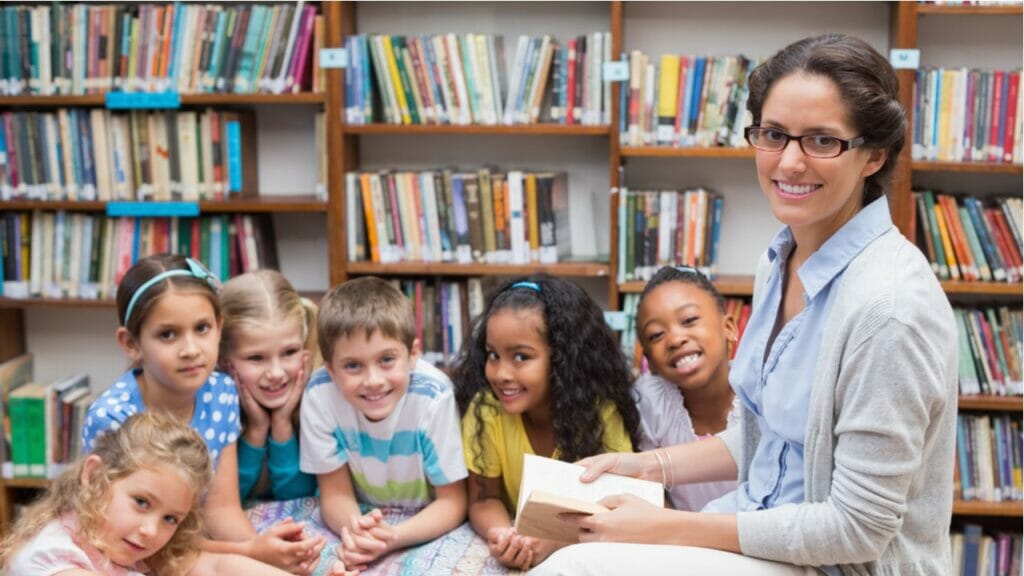Early Childhood Education is a two-year diploma program that prepares students for work in early childhood studies and care.
Students of Early Childhood Education in Canada build skills through unique pedagogy to collaborate with families, coworkers, and communities to create, administer, and evaluate inclusive, play-based ECE programs through interactive classroom and work-integrated learning (WIL) activities during their semester studies.
The demand for Childhood educators is growing by the day. If you’re passionate about working with Children, Early Childhood Education is an excellent choice for you.
The tuition fee for Early Childhood Education Courses in Canada is CAD 10,000 to CAD 20,000, depending on the university you apply to. Post-graduation candidates can expect great salaries starting from CAD 30,000.
In this blog, we’ll discuss Early Childhood Education in Canada, including universities, career outcomes and more.

Top Colleges for Early Childhood Education Courses In Canada
Most of these universities in Canada offer Early Childhood Education courses in multiple intakes. The requirements and tuition fees are regularly updated and vary from university to university.
| University | Duration | Tuition Fee |
| Fanshawe College | 13 months | $31,078 |
| Conestoga College | 2 years | $14,163 |
| Humber College | 2 years | varies |
| Seneca College | 2 years | $16,043 |
| Centennial College | 2 years | $15,693 |
| The University of British Columbia | 1-2 years | varies |
| Canadore College | 1 year | $14,807 |
| George Brown College | 2 years | $17,646 |
| York University | 1-2 years | varies |
For a full list of universities in Canada and their eligibility requirements, book a free call with our experts.
Early Childhood Education in Canada for International Students: Eligibility Requirements
For proof of English proficiency, one of the following certifications is required:
- The IELTS (International English Language Testing System) is an academic language testing system. A minimum overall score of 6.0 is required, with no individual band score below 6.0; however, one band at 5.5 will be accepted.
- TOEFL (Test of English as a Foreign Language) requires an overall minimum score of 79 on a computer.
- PTE (Pearson Test of English) – Graduate Diploma: 58+
Note: If your country of citizenship has English as its official language, alternate proof of English proficiency may be accepted for the degree program. Proof of senior high school diploma/certificate (equivalent to Arts/Commerce/Science stream). All educational documents must be submitted in English and will depend on the applicant’s country of citizenship.

Want to Score 7+ IELTS Band in 4 Weeks?
5L+ students across India have signed up for Leap’s Masterclass to date.

Want to Score 7+ IELTS Band in 4 Weeks?
5L+ students across India have signed up for Leap’s Masterclass to date.
Post-Admission Requirements for Early Childhood Courses in Canada
You must ensure you have the following documents after acceptance to the course but before classes begin for the Early Childhood Education Diploma or Degree:
- Current immunisation records, as well as a chest x-ray or tuberculin skin test report, are required.
- Valid Standard First Aid certificate with CPR C (two-day course)
Cost of Studying Early Childhood Education in Canada
The average tuition fee for the first year of Early Childhood Studies in Canada is approximately CAD 14,000 and can go up to CAD 20,000, depending on the university.
Other expenses such as application fees, hostel accommodation, meals, insurance, books, appliances, and residential application fees would amount to approximately CAD 12,000 for one year of study.
Career Prospects for Early Childhood Education Courses in Canada
Early childhood educators design classes around play and hands-on activities, which are the significant ways young children learn and develop their behaviour. Games, music, artwork, videos, books, and, increasingly, computers are used to engage them.
Children’s imagination, communication, and problem-solving skills can be sparked through materials such as construction blocks, clay, and puzzles. Gardening, playing musical instruments or making a meal are group activities that foster social skills and teamwork.
A job in early childhood teaching allows you to work with toddlers while they are most receptive to learning. Toddlers’ play today can set them up for years of academic and adult success.
If you choose a career in Early Childhood Education, you could work in a variety of roles, including
- Early Childhood Educator: As an Early Childhood Educator in Canada, you will play an important role in nurturing young children and providing them with care and education.
- Early Childhood Assitant: In this role, you will play an integral part in planning and executing programs for children under the supervision of Early Childhood Educators.
- Special Needs Educator: This noble profession revolves around caring for and educating children with disabilities.
- Kindergarten Teacher: Kindergarten Teachers play an important role in introducing children to formal education and helping them develop social and academic skills.
Here’s an overview of popular Early Childhood Educator roles with average salaries.
| Designation | Average Salary |
| Early Childhood Educator | 40,658 CAD |
| Early Childhood Educator Assistant | 34,001 CAD |
| Childcare Center Director | 42,686 CAD |
| Special Needs Teacher | 73,027 CAD |
| Kindergarten Teacher | 46,529 CAD |
Also read: Which Course is best after B.Ed in Canada?

Final Thoughts
The Early Childhood Education programme is considered highly crucial to develop skills that can help aspiring teachers train the minds of young pupils creatively and properly.
This programme offers numerous opportunities to deliver knowledge to a most exciting age group of learners.
Considering Early Childhood Education Courses in Canada? Learn more by speaking to LeapScholar’s experts today!
Here’s how we can help you:
- Do a detailed profile analysis and match you with a list of universities
- Apply to the universities, including SOP and LOR writing
- Track the progress of the application and keep you informed
- Help you secure a student visa
All you have to do is book a free call with us. Schedule today!
Frequently Asked Questions
-
Q. What are the advantages of taking Early Childhood Education degree programmes in Canada?
A. Taking the ECE program in Canada opens a wide range of opportunities, including:
-Possibility of working in daycares, preschools and more
-Possibility of starting your venture
-Being a part of an important phase of a child’s life
-A fulfilling career and good pay with benefits such as health insurance -
Q. Is there a demand for Early Childhood Education in Canada?
A. Teaching is an in-demand profession. The Canadian government views the Early Childhood Education program as critical in creating a safe and secure future for the country’s children and families. The demand for teachers will never go out of relevance. If you are planning to study an early childhood course in Canada, be assured that it will be a fulfilling career.
-
Q. What course can I take to get my Early Childhood Education licence in Canada without any degree?
A. The Child Care Orientation Course is for employed childcare workers who lack formal training in early learning programs and child care programs and high school students who want to work in this field. But, a degree is the best option to get a licence.
-
Q. What are the top colleges for Early Childhood Education in Canada courses?
A. Some of the top colleges in Canada for Early Childhood Education courses in 2023-2024 include
-Conestoga College
-Fanshawe College
-Humber College
-Seneca College -
Q. What are the eligibility criteria for Early Childhood Education courses in Canada?
A. The eligibility criteria may vary slightly depending on the college and program. Generally, applicants should have high school transcripts or a relevant undergraduate degree. Applicants will also need English proficiency test scores.
-
Q. What is the duration of Early Childhood Education courses in Canada?
A. Early Childhood Education courses in Canada can be completed in 1-2 years. A bachelor’s degree in the same will go on a little longer, for 3-4 years, depending on the university. If you opt for a part-time course, your duration will be much shorter. It’s best to check the course highlights with the university before you apply for it.
-
Q. What is the average tuition fee for Early Childhood Education Courses in Canada?
A. The tuition fee for ECE courses in Canada ranges from CAD 10,000 to CAD 20,000 per year. Canada is considered to be much more affordable than the USA or the UK. The country also has plenty of scholarships that can bring down your cost. Universities also sponsor merit-based scholarships as a part of admissions for most courses.
-
Q. Are there scholarships available for Early Childhood Education courses in Canada?
A. Some colleges and universities in Canada offer scholarships and financial aid programs for students pursuing Early Childhood Education courses. You can also apply for government-funded scholarships in Canada that apply to most master’s courses. These include:
-Vanier Graduate Scholarships
-Ontario Graduate Scholarships
-Quebec Provincial Government Scholarship -
Q. Are there online or distance learning options for Early Childhood Education courses in Canada?
A. Yes, several Canadian colleges and universities offer early childhood education courses online or through distance learning. These programmes give students who are unable to attend classes on campus alternative possibilities. Both full-time and part-time options are available for online/distance learning mediums.
-
Q. Can international students work off-campus while studying in Canada?
A. International students can work up to 20 hours while studying and full-time during holidays. Recently, however, Canada has temporarily lifted this ban, allowing students to work full-time while they study. It’s best to also check for any university-specific restrictions before you find a part-time job in Canada.
-
Q. What is the IELTS score required to study ECE in Canada?
A. You need a minimum IELTS score of 6.0 for undergraduate and 6.5 for postgraduate courses in Canada. However, these requirements may vary depending on the university. Top universities prefer a score of 7 and above due to the competitiveness of the admissions. Your score requirements may also vary depending on how advanced your course is.

















Have Questions? Get Guidance to reach your Dream University
Connect with India's finest counsellors and biggest study abroad community.